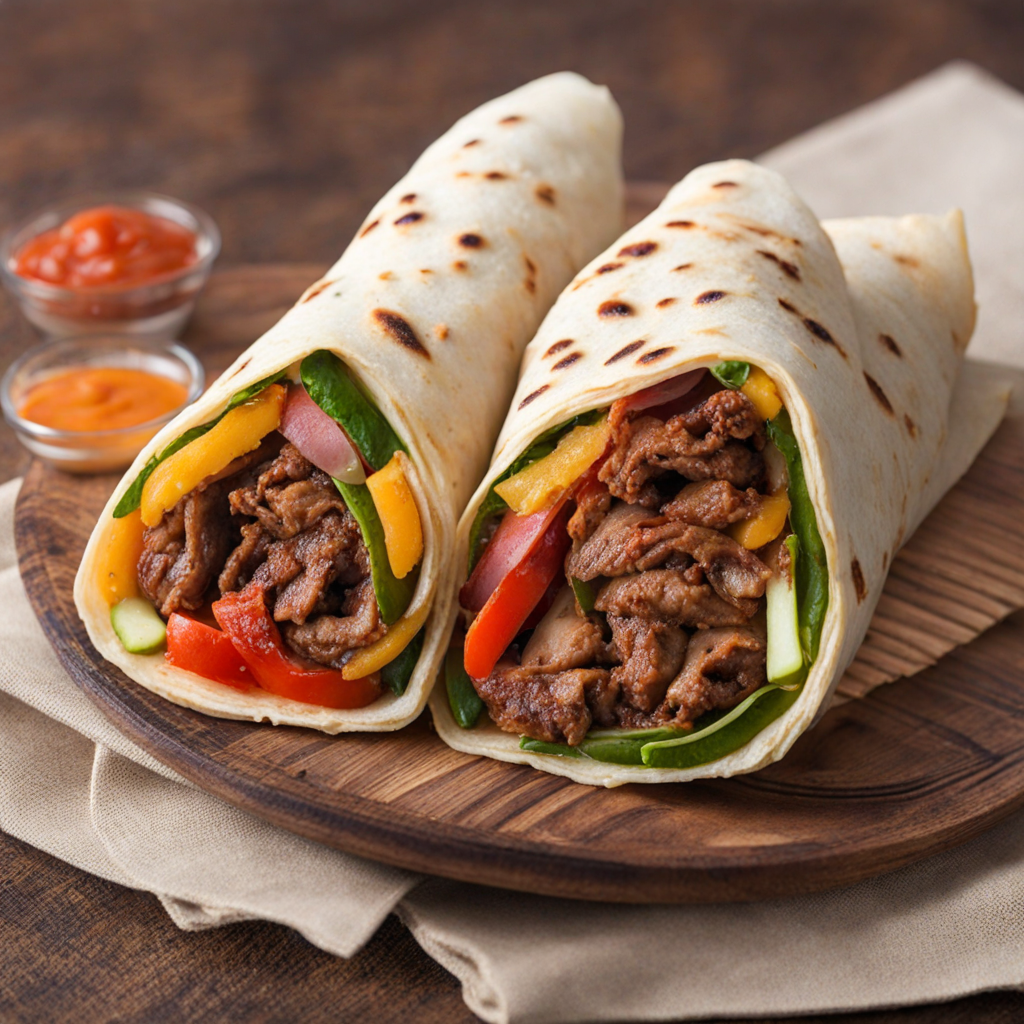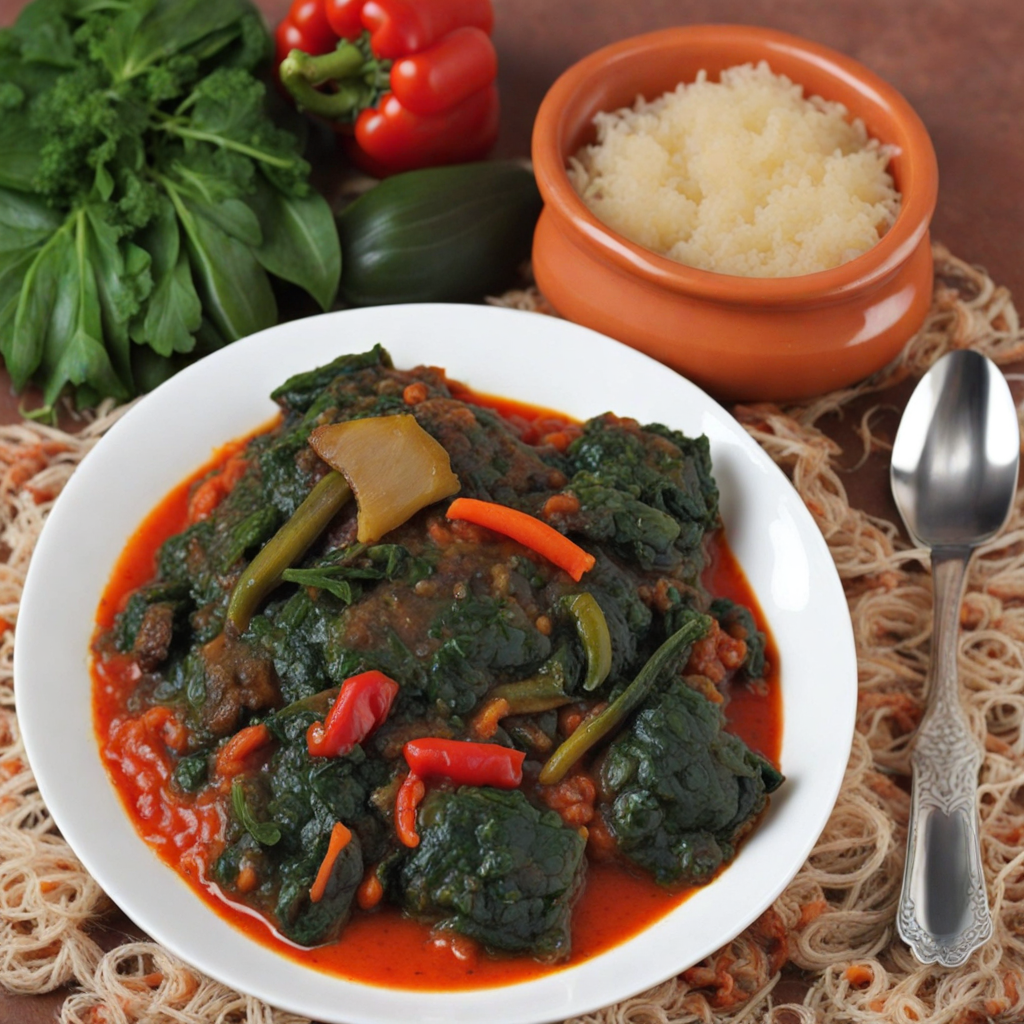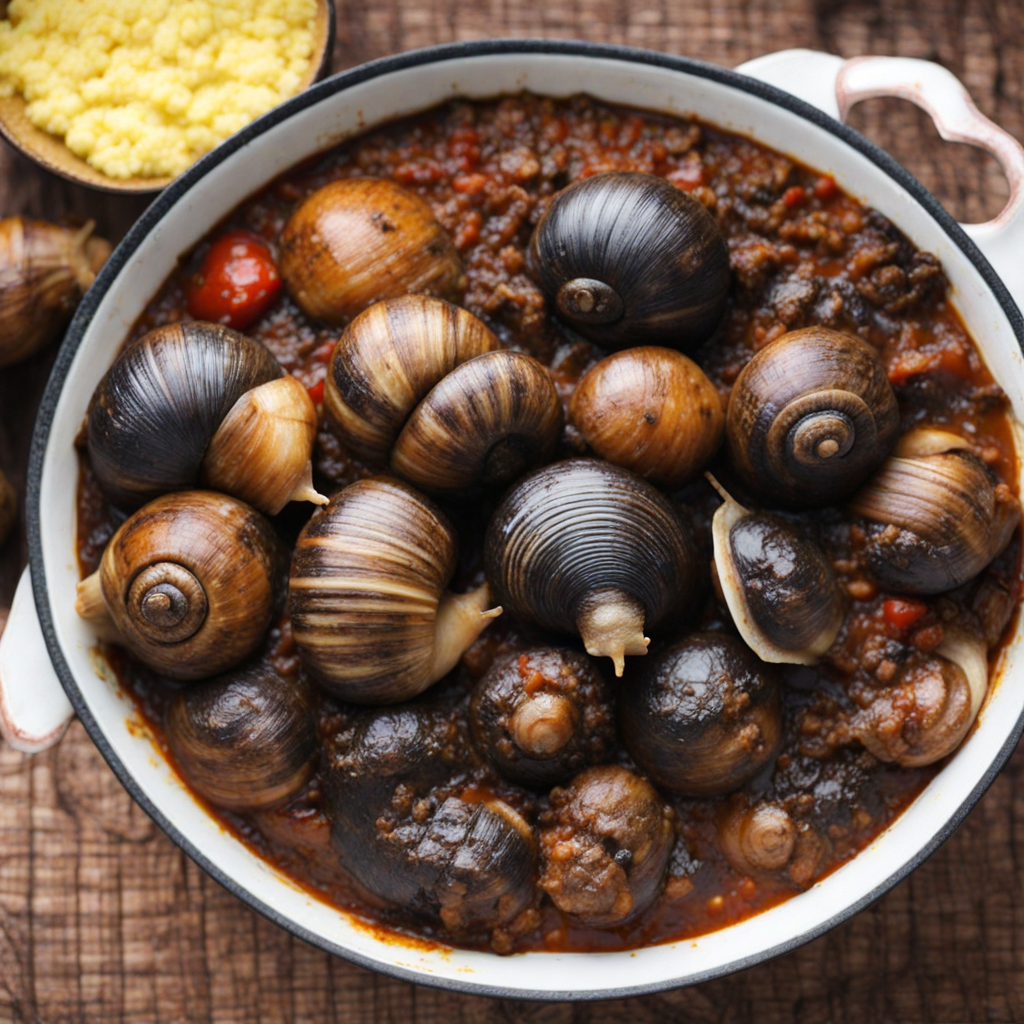Meat Pie
Meat Pie is a beloved Nigerian snack that embodies the rich culinary heritage of the country. This delicious pastry features a flaky, golden-brown crust that encases a savory filling made primarily from well-seasoned minced meat, typically beef or chicken, combined with vegetables like carrots and potatoes. The balance of flavors is enhanced with aromatic spices, creating a taste sensation that is both comforting and delightful. Each bite offers a satisfying crunch from the crust, followed by the succulent and flavorful filling that warms the palate. What makes Nigerian Meat Pie particularly special is the way it is often infused with local spices and seasonings, such as thyme, curry powder, and onions, giving it a unique twist that sets it apart from other meat pies around the world. The dough itself is crafted with care, often incorporating butter or margarine for that rich, buttery taste that complements the hearty filling. Meat Pies are often enjoyed as a snack or a light meal and are a staple at events and gatherings, showcasing the friendly and communal spirit of Nigerian culture. Serving Meat Pie is a delightful experience, often accompanied by a side of pepper sauce or a refreshing drink to balance the flavors. The versatility of this dish means it can be tailored to individual tastes, with variations that include different meats or even vegetarian options. Whether enjoyed on the go, at a festive celebration, or as part of a cozy meal at home, Nigerian Meat Pie promises a delicious journey into the heart of Nigeria's vibrant food scene, making it an enticing option for anyone looking to explore new culinary horizons.
How It Became This Dish
The History of Meat Pie in Nigeria: A Culinary Journey #### Origins The meat pie, a beloved culinary staple in Nigeria, has roots that intertwine with the country's colonial past and the melding of various cultural influences. While pies, in general, have a long history dating back to ancient civilizations like the Egyptians and Greeks, the specific evolution of the meat pie in Nigeria is a relatively modern phenomenon, shaped by both indigenous practices and British culinary traditions. The introduction of the meat pie to Nigeria can be traced back to the late 19th and early 20th centuries during British colonial rule. The British brought their culinary habits, including pastries and pies, to the regions they colonized. As a result, the meat pie began to take shape in urban centers, particularly Lagos, where the confluence of British and local cultures created a fertile ground for the adaptation of this dish. #### Cultural Significance In Nigeria, the meat pie transcends mere sustenance; it embodies social gatherings, celebrations, and the fusion of cultures. It is often associated with festive occasions, such as weddings, birthdays, and public holidays. The meat pie has become more than just a snack; it is a symbol of community and togetherness, often shared among friends and family during important events. Moreover, the meat pie has found its way into street food culture across Nigeria. From bustling markets to roadside stalls, vendors offer their unique takes on this dish, making it accessible to all. This accessibility has further enriched the meat pie's significance, as it serves as a bridge between social classes. Whether enjoyed by the affluent or the working class, the meat pie unites people through a shared love of food. #### Development Over Time Initially, the Nigerian meat pie was heavily influenced by the British recipe, which typically featured minced meat, onions, and spices encased in a flaky pastry. However, as time went on, Nigerian cooks began to experiment with the filling and preparation methods, leading to a distinctive version that reflects local tastes and ingredients. One of the most notable adaptations is the incorporation of local spices and flavorings. Nigerian meat pies often include a blend of seasonings such as curry powder, thyme, and nutmeg, which infuse the filling with a rich and aromatic profile. Additionally, ingredients like ground beef, chicken, or even fish can be used, catering to various dietary preferences and cultural practices. The pastry itself has also evolved. While the original British version may have been more akin to a traditional shortcrust pastry, Nigerian bakers have developed a softer, more pliable dough that can withstand the rigors of street food preparation and transport. This dough is often enriched with eggs or butter, creating a textured crust that is both delicious and satisfying. The rise of the internet and social media platforms in the early 21st century has further propelled the popularity of the meat pie. Cooking tutorials, food blogs, and social media posts have allowed home cooks and aspiring chefs to share their unique recipes and variations, leading to an explosion of creativity in meat pie preparation. This digital age has also allowed for the crossover of culinary influences, with the Nigerian meat pie adapting elements from other global pie traditions, such as the use of different meats, vegetables, and even cheeses. #### Regional Variations As with many dishes in Nigeria, regional variations of meat pie have emerged, each reflecting local ingredients and tastes. For example, in the northern regions, where spices like cumin and coriander are more prevalent, the meat pie may have a spicier flavor profile. In contrast, the southern regions, known for their seafood, might incorporate fish or shrimp into their pies, showcasing the diversity of Nigeria's culinary landscape. In addition to these regional differences, the meat pie has also inspired a plethora of fusion dishes. Chefs and home cooks alike have begun to experiment with fillings that reflect Nigeria's diverse cuisines. For example, meat pies filled with jollof rice — a beloved West African dish made of rice, tomatoes, and spices — have emerged, creating a heartier and more filling snack. #### The Contemporary Scene Today, the meat pie is a ubiquitous presence in Nigeria, found in bakeries, restaurants, and street food stalls across the country. The dish has also gained international recognition, with Nigerian diaspora communities introducing it to new audiences in places like the United States, the United Kingdom, and Canada. As a result, the meat pie has become a symbol of Nigerian cuisine abroad, representing the rich cultural heritage of the nation. Furthermore, the rise of food delivery services and the growing interest in Nigerian cuisine among food enthusiasts have contributed to the meat pie's modern popularity. Chefs are now taking their meat pies into gourmet territory, incorporating high-quality ingredients and innovative cooking techniques to elevate this classic dish. #### Conclusion The meat pie in Nigeria is more than just a culinary delight; it is a testament to the country's rich history, cultural amalgamation, and evolving culinary landscape. From its origins during colonial times to its current status as a beloved snack, the meat pie reflects the resilience and creativity of the Nigerian people. As it continues to adapt and grow, the meat pie remains a symbol of community, celebration, and the enduring power of food to bring people together. Whether enjoyed at a street stall or served at a lavish banquet, the meat pie stands as a delicious reminder of Nigeria's vibrant culinary heritage.
You may like
Discover local flavors from Nigeria







